Traveling to Canada: All Crucial Information
Planning a trip to Canada? Ensure smooth travels by understanding the entry requirements. U.S. citizens can visit visa-free for up to 180 days with a passport. Non-U.S. citizens generally require an eTA or visa in addition to a valid passport. Learn about crucial documents, duty-free allowances, and essential travel health insurance to make your Canadian adventure worry-free. Discover key information now for a seamless border crossing.
Important information

- A valid passport is essential for all visitors.
- U.S. citizens can visit Canada for up to 180 days without a visa.
- Non-U.S. citizens generally require a visa or an Electronic Travel Authorization (eTA).
- Travel health insurance is strongly recommended due to potentially high medical costs.
- Those with a criminal record, including DUIs, should consult Canadian immigration authorities before traveling.
Entry Requirements for Traveling to Canada
Planning a trip to Canada? A valid passport is essential. U.S. citizens can visit for up to 180 days without a visa, but non-U.S. citizens generally need both a passport and a visa or eTA (Electronic Travel Authorization). While U.S. children under 16 can sometimes use alternative identification, everyone, regardless of age or citizenship, must present proof of both citizenship and identity to comply with Canadian law.
What Travel Documents Are Needed?
American citizens traveling to Canada by air require a U.S. passport book. Other forms of identification might be accepted, but a valid passport is typically necessary to confirm citizenship.
Visa and Electronic Travel Authorization (eTA)
Visa-exempt foreign nationals flying to or transiting through Canada require an Electronic Travel Authorization (eTA). This applies to airport arrivals.
U.S. citizens are exempt from both visa and eTA requirements. Those needing a visa must obtain a visitor visa in advance of their trip.
Proof of Citizenship and Identity
Canadian citizens can travel with the following documents:
- passport,
- Enhanced Driver’s License,
- NEXUS card.
US citizens have similar options:
- passport,
- passport card,
- Enhanced Driver’s License,
- NEXUS card.
Citizens of other countries typically require a passport and possibly a visa.
Understanding Canadian Immigration Policies
Planning a trip to Canada? While U.S. citizens usually enjoy simplified entry, understanding Canada’s immigration policies is crucial for a smooth trip. Your nationality and the purpose of your visit determine the specific requirements, so research thoroughly beforehand. A criminal record may trigger additional screening, so be prepared. Consult official Canadian government resources for the most accurate and up-to-date information.
For U.S. Citizens
Short visits typically don’t require a visa.
For Other Nationalities
A visa may be required depending on your country of origin. Check the specific visa rules for your country.
Prior criminal convictions can significantly impact your admissibility. If you have a criminal record, contacting Canadian immigration authorities in advance is highly recommended.
U.S. Citizens and Visa Requirements
Traveling to Canada as a U.S. citizen is simple for tourist visits under 180 days. A valid U.S. passport is required, although other Western Hemisphere Travel Initiative (WHTI)-compliant documents are acceptable. Be ready to show your travel plans and proof of funds to support your stay.
Visitor Visa for Other Nationals
Non-U.S. citizens need a visitor visa to enter Canada. Visa requirements vary depending on your nationality, so it is essential to check your country’s specific guidelines before you travel.
Admissibility and Criminal Records
A DUI conviction carries significant consequences in Canada, potentially barring entry into the country. Anyone with a DUI should consult with Canadian immigration officials before traveling.
Border Information for Travelers
Crossing the Canada-US border requires proper documentation, regardless of your mode of transport. For land crossings, acceptable documents include a passport, an Enhanced Driver’s License, or a NEXUS card. Air travelers must present a passport. Arriving by water requires a passport or other proof of citizenship.Your duty-free allowance depends on your trip length. A 24-hour trip allows CA$200 worth of goods. A 48-hour trip grants you CA$800. Remember that alcohol and tobacco have separate limits.Most food products must be declared. This includes certain fruits, vegetables, meats, and dairy. Failure to declare these items can result in fines and other penalties.
Canada-US Border Crossing
Travelers should be aware that while the Canada-United States border is open, specific entry requirements must be met.
Duty-Free Allowances
Planning a trip to Canada? You can bring certain items duty-free. Some examples include up to 1.5 liters of wine or 1.14 liters of liquor, and 200 cigarettes. Full disclosure is key: declare everything you bring to avoid potential fines. Certain items, like some foods, plants, and animals, have import restrictions. It’s best to check the regulations in advance.
Declaring Food Products
When entering Canada, declare all food items at customs. This includes processed foods, fruits, vegetables, and dairy products. Failure to declare food items can result in fines or confiscation.
Travel Insurance and Health Considerations
Planning a trip to Canada? Don’t forget travel health insurance—it’s essential because medical expenses can be significant. Review your existing health plan to see if it provides international coverage. Understanding the Canadian healthcare system is also important, so familiarize yourself with its workings. Locate nearby hospitals and clinics at your destination; this advance preparation can be invaluable.
Secure travel health insurance. Medical costs in Canada can be substantial, so adequate insurance is crucial.
Check your current health plan. Determine if it offers coverage for medical expenses incurred while traveling abroad.
Research the Canadian healthcare system. Familiarize yourself with how healthcare operates in Canada.
Identify nearby medical facilities. Locate hospitals and clinics near your destination in advance.
Should You Get Travel Health Insurance?
Planning a trip to Canada? Don’t forget travel health insurance. Medical expenses can be substantial, so having a policy in place is crucial. If your current health plan doesn’t offer international coverage, consider a temporary policy for your visit. A comprehensive travel insurance plan should cover:
- medical emergencies,
- evacuations,
- trip cancellations, and
- lost luggage.
Protect yourself from unexpected costs and ensure a worry-free Canadian adventure.
Checking Existing Health Insurance Policies
Before your trip to Canada, take the following steps:
Review your current health insurance policy.
Contact your insurance provider to confirm coverage for medical expenses in Canada, including hospital stays and emergency evacuations.
Inquire about coverage limitations, exclusions for pre-existing conditions, and any other relevant details.
Consider supplemental travel insurance for additional peace of mind and comprehensive coverage during your trip.
Access to Medical Services
Cell service is readily available across most Canadian towns and cities. This is particularly crucial for accessing medical assistance if needed. Therefore, your phone should be a reliable tool.
Travel Tips for Visitors to Canada
Planning a trip to Canada? If you require a visa, you’ll need a Temporary Resident Visa (TRV). Business travelers may need a TRV or a work permit depending on their trip’s purpose and length. Check the specific requirements for your nationality before you travel.Staying connected in Canada is simple. You can purchase a local SIM card, use your phone’s roaming plan, or connect to readily available Wi-Fi. Remember that Canada has two official languages: English and French.
Family Visits and Business Visitors
Planning a trip to Canada for your family or business associates? Depending on their nationality, they’ll likely need a visitor visa or an electronic Travel Authorization (eTA).
Family Visits
Family members must demonstrate their relationship to you and outline the purpose of their visit. They also need to provide proof of funds to cover their expenses.
Business Visits
Business visitors typically require a visa or eTA. They must clearly establish their business objectives and provide supporting documents.
- Invitations,
- meeting agendas,
- contracts, or
- a letter from their employer confirming their role and the reason for travel can strengthen their application.
Communicating While Traveling
Canadian cell service relies on a network of towers, primarily concentrated in urban areas. For uninterrupted connectivity, especially in rural or remote regions, planning ahead is crucial.







